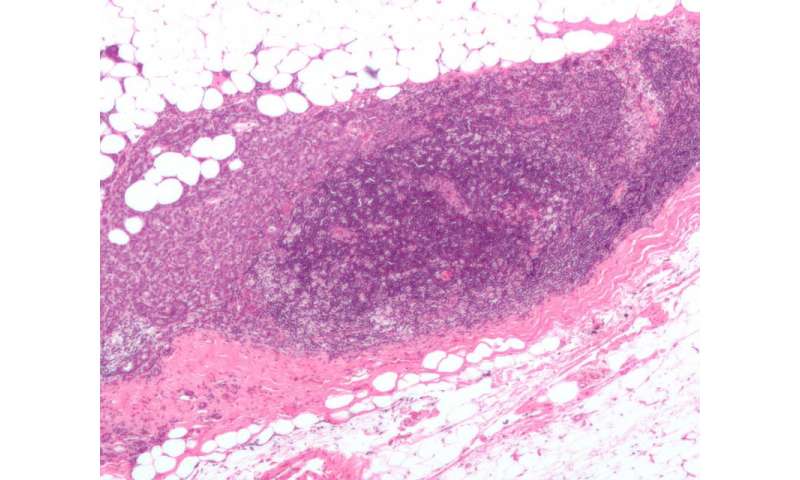
When breast cancer spreads to the brain, the prognosis is grim. Patients only have about six months to live.
Women with HER2-positive breast cancer tend to develop brain metastases in up to 55% of cases. Chemotherapy drugs targeting breast cancer cells in the brain aren’t effective, because they can’t cross the blood-brain-barrier.
But a new combination therapy targeting breast cancer tumors in the brain dramatically decreased tumor size and increased survival in a study with mice, reports a new Northwestern Medicine study. An estimated 75% of mice that had brain metastases from breast cancer were cured and cancer-free after the therapy.
“The new combination therapy we identified can cross the blood-brain barrier,” said lead study author Dr. Maciej Lesniak, Northwestern Medicine chair of neurological surgery and professor of neurosurgery at Northwestern University Feinberg School of Medicine. “The therapy also targets brain metastases and significantly improves survival.”
The paper will be published on August 26 in Science Translational Medicine.
The two drugs are tubulin inhibitor, vinorelbine, approved by the U.S. Food and Drug Administration (FDA) and available in clinics, and bromodomain inhibitor, I-BET-762, FDA approved for clinical trials. The bromodomain inhibitor increased βIII-tubulin, a protein found in cancer cells that metastasize to the brain. Overexpression of βIII-tubulin sensitized cancer cells to be killed by vinorelbine.
“The findings of our work set the stage for a clinical trial, whereby patients with breast cancer brain metastases can be treated with the combination of these two drugs,” Lesniak said. “This will offer patients with breast cancer brain metastases, who have been systematically excluded from clinical trials, the chance to benefit from a new therapeutic regimen that has been proven to be strongly effective in experimental settings.”
Breast cancer spreads to other organs like brain, lung and bone. The metastasis of breast cancer to the brain is a terminal disease and the deadliest complication.
There is a lack of targeted therapies for breast cancer brain metastases, said first study author Deepak Kanojia, research associate in neurological surgery at Feinberg.
“Patients with brain metastases are often excluded from clinical trials due to their poor outcomes and dismal survival,” Kanojia said. “Regular systemic therapies, like Herceptin, do not cross the blood-brain-barrier efficiently, and offer no benefit in brain metastases,” he said.
How the study worked
Source: Read Full Article
